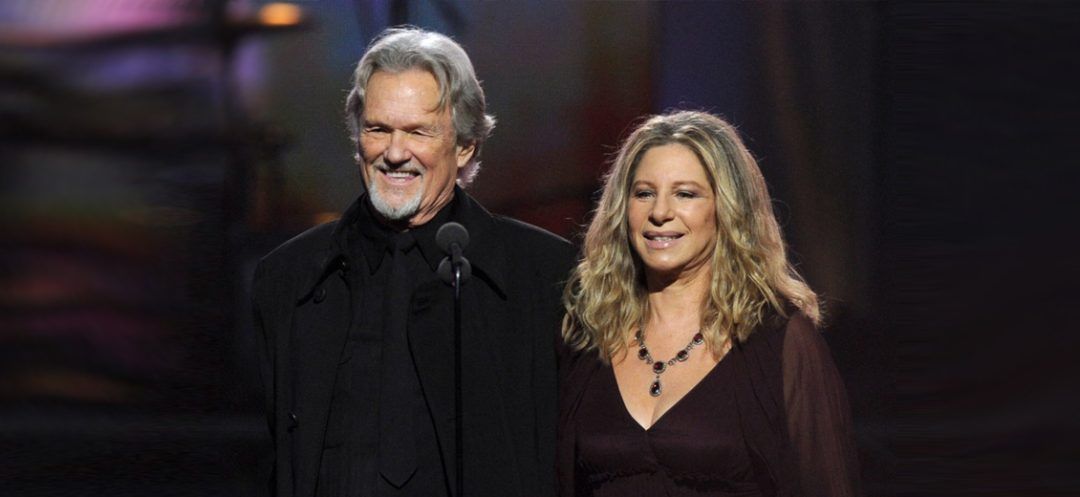
Kris Kristofferson, the celebrated country music star, actor and songwriter known for timeless hits like Me and Bobby McGee and his role in A Star is Born, passed away at the age of 88. His family announced that he died peacefully at home in Hawaii on September 28, leaving behind a remarkable legacy in both music and film.
Kris Kristofferson, a towering figure in American music and film, passed away at 88. From country music stardom to cinematic triumphs, his legacy as a songwriter, actor and cultural icon remains unparalleled.
Kris Kristofferson was more than just a country music legend. His voice, rough-edged yet deeply emotive, captured the souls of listeners, while his lyrics spoke to the complexities of human existence—loneliness, love, despair and redemption. But Kristofferson was also a man of striking contradictions. A Rhodes Scholar turned soldier, he left behind an illustrious military career to follow a dream of songwriting that would change the landscape of American music.
Born on June 22, 1936, in Brownsville, Texas, Kristofferson’s early life seemed to chart a predictable course. His father was an Air Force general, and young Kris followed in his footsteps. He was an exemplary student, earning a scholarship to Pomona College in California, where his interest in literature and poetry flourished. From there, he won the prestigious Rhodes Scholarship, which took him to Oxford University. It was during this time that Kristofferson’s passion for songwriting began to surface. Though he excelled in academia, the pull of music was undeniable.
After Oxford, Kristofferson joined the US Army, where he became a helicopter pilot. However, his military career was short-lived. He was offered a teaching position at West Point, but in a bold and fateful decision, he declined the offer to pursue his dream of becoming a songwriter. He moved to Nashville, the cradle of country music, where he worked odd jobs while writing songs and trying to break into the industry.
Kristofferson’s big break came in 1969 when Johnny Cash recorded his song Sunday Mornin’ Comin’ Down. The raw, introspective lyrics about a hungover man’s melancholic morning struck a chord with audiences, and the song became a major hit. It was a pivotal moment not only for Kristofferson but for the genre itself. His brand of country music was different—darker, more introspective and poetically rich.
Throughout the 1970s, Kristofferson became known as one of the greatest songwriters of his generation. His song Me and Bobby McGee became a posthumous hit for Janis Joplin, with whom he had a brief relationship. The song’s fusion of heartbreak and freedom would come to define a generation. Other hits, like For the Good Times and Help Me Make It Through the Night, were recorded by major artists, cementing Kristofferson’s place as a leading voice in country music.
But Kristofferson was never content to be boxed in by any label. His charisma and rugged good looks soon caught the attention of Hollywood. In 1976, he starred opposite Barbra Streisand in the classic remake of A Star is Born, playing a washed-up rock star whose tumultuous relationship with a rising talent mirrored Kristofferson’s own complicated romance with fame. The role earned him a Golden Globe for Best Actor, and the film was both a critical and commercial success. It also showcased Kristofferson’s ability to tap into the vulnerability of his characters, bringing the same emotional honesty to his acting that he brought to his music.
Though A Star is Born was a triumph, Kristofferson’s film career wasn’t without its low points. The 1980 western epic Heaven’s Gate was a notorious flop, damaging his reputation in Hollywood. Around the same time, Kristofferson’s struggles with drugs and alcohol began to take a toll on both his personal life and career. Yet, true to form, he weathered the storm and continued to work, starring in a wide variety of films over the years, including the Blade trilogy, where he played Whistler, a mentor to Wesley Snipes’ vampire-hunting character.
In the mid-1980s, Kristofferson found new life as a founding member of the supergroup The Highwaymen, alongside Johnny Cash, Waylon Jennings and Willie Nelson. The quartet’s outlaw image and rebellious spirit were a natural fit for Kristofferson, whose career had always been marked by a refusal to conform to expectations.
Though his recording output slowed in the later years of his life, Kristofferson continued to perform until 2021 when he officially retired from music. His final tours were bittersweet, as his memory had begun to fail him. Yet even in these moments, his music remained powerful, a testament to the enduring strength of his songwriting.
Kris Kristofferson was a man who lived life on his own terms. He was a poet, a renegade, a soldier and a star. Through his music and films, he captured the complexity of the human experience—its joys, its sorrows and its longings.
Kris Kristofferson, a towering figure in American music and film, passed away at 88. From country music stardom to cinematic triumphs, his legacy as a songwriter, actor and cultural icon remains unparalleled.
Kris Kristofferson was more than just a country music legend. His voice, rough-edged yet deeply emotive, captured the souls of listeners, while his lyrics spoke to the complexities of human existence—loneliness, love, despair and redemption. But Kristofferson was also a man of striking contradictions. A Rhodes Scholar turned soldier, he left behind an illustrious military career to follow a dream of songwriting that would change the landscape of American music.
Born on June 22, 1936, in Brownsville, Texas, Kristofferson’s early life seemed to chart a predictable course. His father was an Air Force general, and young Kris followed in his footsteps. He was an exemplary student, earning a scholarship to Pomona College in California, where his interest in literature and poetry flourished. From there, he won the prestigious Rhodes Scholarship, which took him to Oxford University. It was during this time that Kristofferson’s passion for songwriting began to surface. Though he excelled in academia, the pull of music was undeniable.
After Oxford, Kristofferson joined the US Army, where he became a helicopter pilot. However, his military career was short-lived. He was offered a teaching position at West Point, but in a bold and fateful decision, he declined the offer to pursue his dream of becoming a songwriter. He moved to Nashville, the cradle of country music, where he worked odd jobs while writing songs and trying to break into the industry.
Kristofferson’s big break came in 1969 when Johnny Cash recorded his song Sunday Mornin’ Comin’ Down. The raw, introspective lyrics about a hungover man’s melancholic morning struck a chord with audiences, and the song became a major hit. It was a pivotal moment not only for Kristofferson but for the genre itself. His brand of country music was different—darker, more introspective and poetically rich.
Throughout the 1970s, Kristofferson became known as one of the greatest songwriters of his generation. His song Me and Bobby McGee became a posthumous hit for Janis Joplin, with whom he had a brief relationship. The song’s fusion of heartbreak and freedom would come to define a generation. Other hits, like For the Good Times and Help Me Make It Through the Night, were recorded by major artists, cementing Kristofferson’s place as a leading voice in country music.
But Kristofferson was never content to be boxed in by any label. His charisma and rugged good looks soon caught the attention of Hollywood. In 1976, he starred opposite Barbra Streisand in the classic remake of A Star is Born, playing a washed-up rock star whose tumultuous relationship with a rising talent mirrored Kristofferson’s own complicated romance with fame. The role earned him a Golden Globe for Best Actor, and the film was both a critical and commercial success. It also showcased Kristofferson’s ability to tap into the vulnerability of his characters, bringing the same emotional honesty to his acting that he brought to his music.
Though A Star is Born was a triumph, Kristofferson’s film career wasn’t without its low points. The 1980 western epic Heaven’s Gate was a notorious flop, damaging his reputation in Hollywood. Around the same time, Kristofferson’s struggles with drugs and alcohol began to take a toll on both his personal life and career. Yet, true to form, he weathered the storm and continued to work, starring in a wide variety of films over the years, including the Blade trilogy, where he played Whistler, a mentor to Wesley Snipes’ vampire-hunting character.
In the mid-1980s, Kristofferson found new life as a founding member of the supergroup The Highwaymen, alongside Johnny Cash, Waylon Jennings and Willie Nelson. The quartet’s outlaw image and rebellious spirit were a natural fit for Kristofferson, whose career had always been marked by a refusal to conform to expectations.
Though his recording output slowed in the later years of his life, Kristofferson continued to perform until 2021 when he officially retired from music. His final tours were bittersweet, as his memory had begun to fail him. Yet even in these moments, his music remained powerful, a testament to the enduring strength of his songwriting.
Kris Kristofferson was a man who lived life on his own terms. He was a poet, a renegade, a soldier and a star. Through his music and films, he captured the complexity of the human experience—its joys, its sorrows and its longings.
Read more



Comments